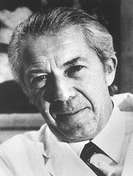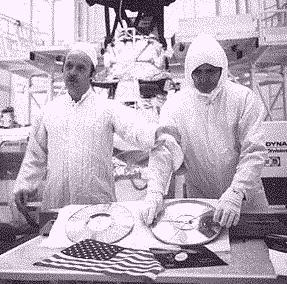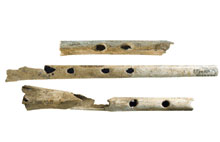What Difference Does It Make? What'sNEWIndeed, Earth itself is suspended in space, so any way we look at it life comes from space. — Lynn Margulis and Dorion Sagan (1)Scientists and nonscientists alike have a similar response to cosmic ancestry. They do not object, "That's impossible! Life couldn't survive in space...." Instead, almost unanimously, they say, "What difference does it make if life on Earth came from space? I want to know how life began in the first place."
"How did life begin in the first place?" sounds like a perfectly good question. Wouldn't anyone like to know the answer to that question? But to be scientific, first we should examine the question. Perhaps the most important step in science is asking the right question. It is detrimental if a question contains unwarranted assumptions. For example, "What body is Earth resting on?" is not a fruitful question. It contains a false (though understandable) assumption. Similarly, the question "How did life begin in the first place?" contains an assumption that we should scrutinize — that life had a specific beginning in a first place. The related question, "How did life on Earth begin?" assumes only what we know very well. There was a time when life on Earth couldn't have existed. Before four billion years ago, Earth was too hot. Before 4.6 billion years ago, Earth didn't exist; it was still forming. Life on Earth had to have a beginning. Life in general — life in the universe — is another, and a quite different, question. If the question that scientists pose for themselves is simply too difficult, they are limited to pure conjecture. For example, in the Middle Ages, how Earth was formed was a question scientists could only guess about. Other knowledge was needed before tackling that one. In practice, most scientific knowledge is accumulated in small steps. Today, if we were able to answer the limited question "How did life on Earth begin?" it would be a rather large small step, wouldn't it? If we figure out that one, we probably deserve a vacation before attacking the next problem. Yet many scientists continue to assert that the question is how life began in the first place. They say that knowing life on Earth comes from space would be of only minor interest because it sheds no light on the question. This position is detrimental to science. Actually, it is dumbfounding. If one had to compose the question for all of science, it should be something like "What's going on?" Isn't that what we really want to know? (3.5) With that attitude, it is fruitful to ask more and more precise questions. But if we continue to insist that the question about life is "How did life begin in the first place?", we establish groundrules that may keep us from learning what's going on. Even if we never find out how life begins in the first place, it makes a lot of difference where life on Earth comes from. If life comes from space, evolution could work completely differently from the way we were taught in school. New genes could come from space throughout life's history, even today. These arrivals could be the source of evolution's raw material — new genetic programs for evolution to sift through, as discussed in the webpages grouped under "How Does Life Evolve?" This makes a pretty big difference in our understanding of what's going on. Under the old theory we are completely isolated from the greater universe, including other life in it, if there is any. But if life comes from space, life is probably abundant in the universe and we on Earth are related to it. This change has profound philosophical and psychological consequences. This makes a really big difference, as we will discuss. What Difference Does It Make?!You are derived from something "out there" in the sky. Seek it and you will find much more than you expect. — Fred HoyleNeo-Darwinism is discouraging. In the preface to Back to Methuselah, George Bernard Shaw writes, in 1921, "But when its whole significance dawns on you, your heart sinks into a heap of sand within you. There is a hideous fatalism about it, a ghastly and damnable reduction of beauty and intelligence, of strength and purpose, of honor and aspiration...." He didn't like it. Even people who like the theory agree that it makes people unhappy. "It is perfectly true that science outrages values," says French microbiologist Jacques Monod. Monod's 1971 book Chance and Necessity discusses the "necessary unhappiness" (4): "We would like to think of ourselves as necessary, inevitable, ordained from all eternity. All religions, nearly all philosophies, and even a part of science testify to the unwearying, heroic effort of mankind desperately denying his own contingency.
"Even more purposeless, more void of meaning, is the world which science presents for our belief. Amid such a world, if anywhere, our ideals henceforward must find a home. That man is the product of causes which had no prevision of the end they were achieving; that his origin, his growth, his fears, his loves and his beliefs, are but the outcome of accidental collocations of atoms; that no fire, no heroism, no intensity of thought and feeling, can preserve an individual life beyond the grave; that all the labors of the ages, all the devotion, all the inspiration, all the noonday brightness of human genius, are destined to extinction in the vast death of the solar system, and the whole temper of Man's achievement must inevitably be buried beneath the debris of a universe in ruins—all these things, if not quite beyond dispute, are yet so nearly certain that no philosophy which rejects them can hope to stand. Only within the scaffolding of these truths, only on the firm foundation of unyielding despair, can the soul's habitation henceforth be safely built." Great. According to the neo-Darwinists, we can all build our new belief system on the firm foundation of unyielding despair. We came out of nowhere, and we aren't going anywhere but to extinction. Even Fred Hoyle, before he adopted the new theory, held a similarly pessimistic view. In 1950 he wrote in The Nature of the Universe (6): "Here we are in this wholly fantastic Universe with scarcely a clue as to whether our existence has any real significance. No wonder then that many people feel the need for some belief that gives them some sense of security, and no wonder that they become angry with people like me who say that this security is illusory. But I do not like the situation any better than they do." Some DifferenceMajor discoveries... are not like the discovery of America, where the general nature of the discovered object is already known. Rather, they are like recognizing that one has been dreaming. — Paul Feyerabend (7) Without cosmic ancestry, the details of biology inspire only indifference in most people. In biology class the student may well wonder, "What difference does it make?" Only a few writers, like Lewis Thomas, are able to infuse wonder, not clinical indifference, into biology. Thomas expressed an admirable sense of wonder about mitochondria, termites, the sense of smell, and words. He knew that the convoluted symbiotic life cycle of the oncideres beetle could hardly evolve by chance alone (8). His attitude was, we don't know everything so we should probably be reverent. Cosmic ancestry restores enchantment to nature. No longer is biology the result of meaningless accidents. Now we realize that life on Earth is related to life throughout the universe. Biology has universal principles. Now one can genuinely enjoy studying the anatomy of a dead beetle or a living horse. Now the barely comprehended nanoscale technology of ribosomes and enzymes boggles the mind. The migration of wintering birds or spawning fish is now pregnant with Gaian purpose. The structural engineering of trees or bones is entertaining. Leaves seem to make the most pleasing and economical solar panels. Life on Earth is gorgeous, and there is something behind it. Life on Earth belongs here. We all belong here. There is a legacy of purpose, intelligence, and intentionality behind our existence. Our hopes and dreams spring from something cosmic. We have descended from cosmic ancestors. They had a motive for launching us, the perpetuation of life. In the words of another cause, "I am somebody." Some of the beauty in nature, we must admit, is completely unnecessary for any survival purpose. Lots of tropical birds, fish, and flowers could easily be a little plainer without suffering. For whom is there so much beauty in nature? Maybe for us. Maybe peacock feathers were just thrown in to get our attention (8.5). Maybe unnecessary natural beauty is one of the trademarks of cosmic ancestors. Perhaps our morality is grounded in cosmic ancestry. Our cosmic ancestors would have had access to the gene or array of genes for altruism. They would have programmed altruism to activate as soon as possible, because they would have been concerned for the success of the whole enterprise. That way, the more highly organized forms of life wouldn't be at the mercy of chance, hoping for heroism and love to emerge out of nowhere. It's possible.
The religious tendency among us is persistent. Our religious traditions tell us that a god lives in the sky and made us in his image. Such beliefs are literally true, if we have cosmic ancestors. This doesn't mean that our cosmic ancestors are gods with supernatural powers. They would be mortal gods, with great, but not supernatural, powers. They would be gods such as we Earthlings might become, if we continue to evolve. Our cosmic ancestors would want us to know about them. We can be pretty sure of that by putting ourselves into their shoes. Perhaps they installed in our genes a genetic memory of themselves. Such a genetic memory could account for the persistence of religions around the world. And it would explain in a new way why the mythologies of different religions are so similar, as philosopher Joseph Campbell tells us (10).
References1. Lynn Margulis and Dorion Sagan, What Is Life?, Simon and Schuster, 1995. p 52.2. A. I. Oparin. "The Origin of Life," 1924; reprinted in Origins of Life: The Central Concepts, David W. Deamer and Gail R. Fleischaker, eds., p 31-71, Jones and Bartlett Publishers, 1994. p 39. 3. Christian de Duve, Vital Dust, BasicBooks, 1995. p 7. 3.5. "What went on?" is also recommended by Diane Nesin. Under uniformitarianism (or "Doctrine of Uniformity") what went on and what's going on follow the same rules. 4. [quoted in] Connie Barlow, ed., Evolution Extended, The MIT Press, 1994. p 180-198. 5. Bertrand Russell, Why I Am Not a Christian and other essays on religion and related subjects, New York: Simon and Schuster, 1957. p 106. 6. Fred Hoyle, The Nature of the Universe, Harper and Row, Publishers, Inc., 1950. p 121. 7. Paul Feyerabend, Killing Time: The Autobiography of Paul Feyerabend, Chicago University Press, 1995. p 92. 8. Lewis Thomas, Late Night Thoughts on Listening to Mahler's Ninth Symphony [first published 1983], Toronto: Bantam Books edition, 1984. p 57. 8.5. 9. Voyager Golden Record from JPL, NASA, describes Voyager's interstellar message. 10. Joseph Campbell, Creative Mythology, Viking Penguin, 1976. | ||||



